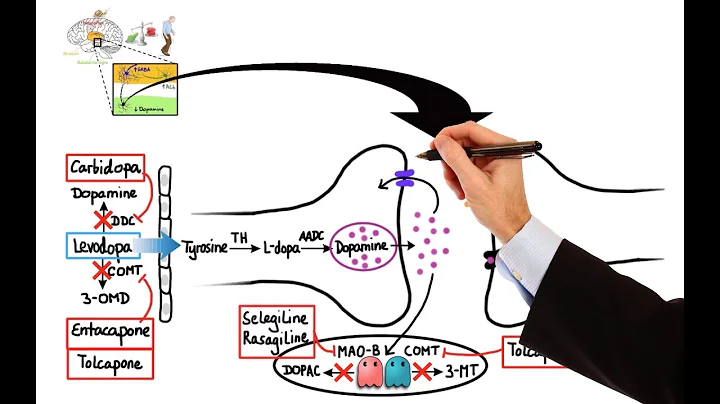
https://www.nature.com/articles/s41586-021-04059-0
Parkinson's disease is the second most common neurodegenerative disease (1), and its important pathological feature is the brain's substantia nigra (substantia nigra) Dopaminergic neuronal mitochondrial complex I (mitochondrial complex I) function is lost (2), but whether this loss causes Parkinson's disease or is just a companion event is still controversial (3).
Northwestern University D. James Surmeier and other researchers used mouse genetics to provide strong evidence to support that the functional loss of mitochondrial complex I of dopaminergic neurons is sufficient to cause a series of symptoms of Parkinson's disease (4).
Researchers specifically knocked out Ndufs2, a key component of mitochondrial complex I, in dopaminergic neurons of mice and found that after a period of metabolic compensation, the mice gradually developed a series of Parkinson's disease symptoms ranging from mild to severe. , and symptoms can be alleviated by the Parkinson's disease treatment drug-levodopa, the precursor molecule of dopamine (4).

Parkinson's symptoms caused by knockout of Ndufs2 in dopaminergic neurons in mice can be alleviated by the Parkinson's disease drug levodopa
Researchers believe that this work clarifies the pathogenesis of Parkinson's disease and can help early detection of patients who are about to develop into Parkinson's disease. Kinson's disease patients and provide relief (5).
This work was published in nature(4) on November 3, 2021.
Comments:
A good animal model of Parkinson's disease; however, the "ultimate" evidence to prove this pathogenic mechanism is to develop effective drugs for the treatment of human Parkinson's disease based on this potential mechanism.
Corresponding author introduction:

https://www.feinberg.northwestern.edu/faculty-profiles/az/profile.html?xid=13458
References:
1. W. Poewe et al., Parkinson disease. Nat. Rev. Dis Prim. 3, 1–21 (2017).
2. D. J. Surmeier, J. A. Obeso, G. M. Halliday, Selective neuronal vulnerability in Parkinson disease. Nat. Rev. Neurosci. 18, 101–113 (2017).
3. H. W. Kim et al. al., Genetic reduction of mitochondrial complex I function does not lead to loss of dopamine neurons in vivo. Neurobiol. Aging. 36, 2617 (2015).
4. P. González-Rodríguez et al., Disruption of mitochondrial complex I induces progressive parkinsonism. Nature(2021), doi:10.1038/S41586-021-04059-0.
5. Gene therapy boosts Parkinson's disease drug benefits -- ScienceDaily, (available at https://www.sciencedaily.com/releases/2021/11 /211103140100.htm).
Original link:
https://www.nature.com/articles/s41586-021-04059-0





















